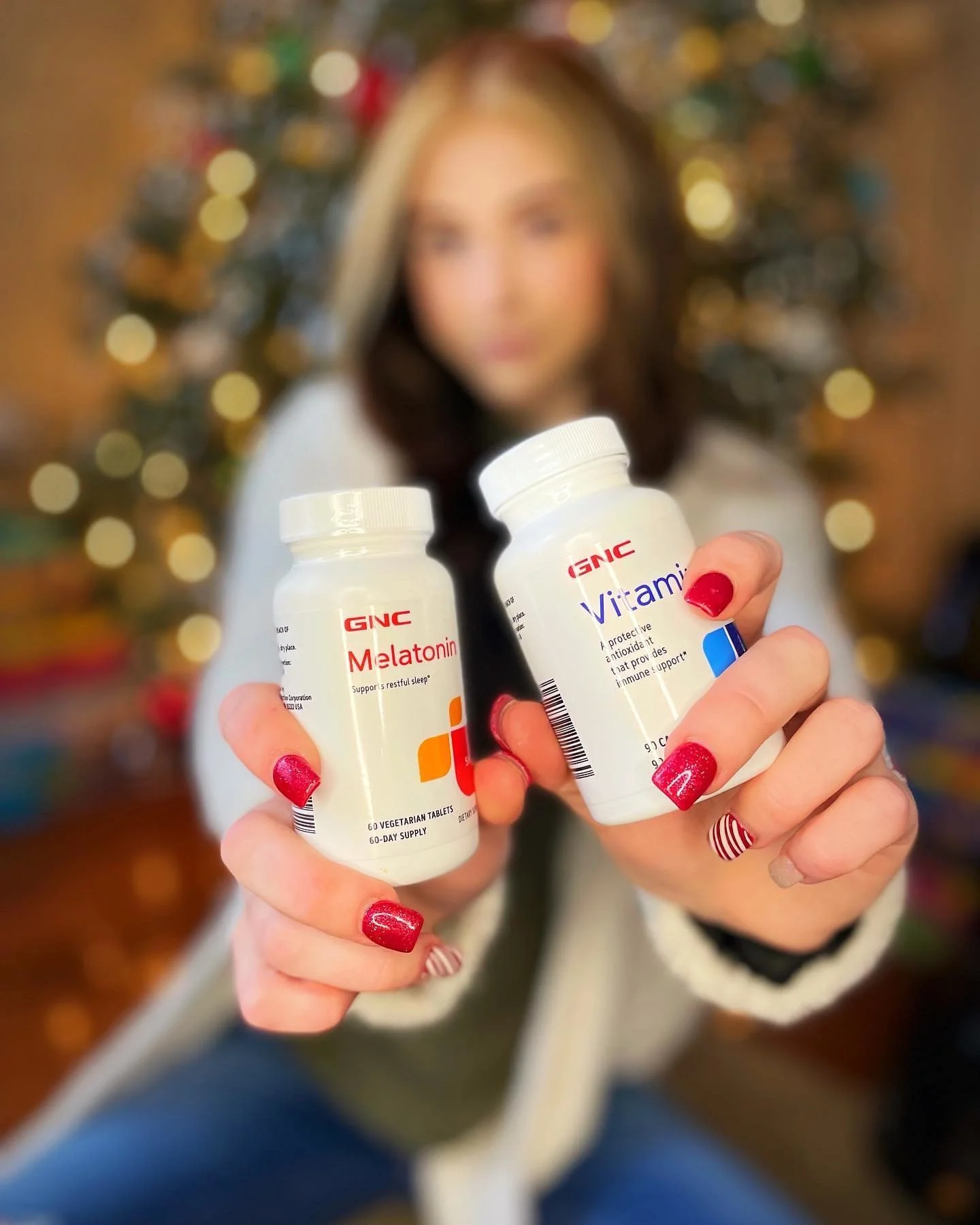Our team is dedicated to finding and telling you more about the web’s best products. If you purchase through our links, we may receive a commission. Our editorial team is independent and only endorses products we believe in.
I’m no stranger to the world of probiotics (and -- to get specific -- the microbiome). As someone who has been deep in the world of functional medicine from a young age trying to tame problematic skin and digestion related to an autoimmune disorder, I’ve read everything from blog posts to academic papers on our gut flora, and even studied it in undergrad as a medical anthropology major.
More importantly, I’ve tried just about every type of probiotic out there -- from shelf-stable medical-grade probiotics and prebiotics, to the litany of options in any health food market -- and experienced firsthand how each has impacted my body, with varying success rates.
As probiotic mania has taken over the DTC world, overwhelm sets in quickly -- and marketing tactics only cloud the facts further. Seed’s dedication to transparency, research, and education means that I not only tested the brand’s Daily Synbiotic, but I also learned about how and why it works. Read on for my full experience, and some clarity on why you might just need Seed’s Daily Synbiotic.
What The Hell Is A Microbiome? And Why Should I Care?
TL;DR: You should care about your microbiome (a lot).
The microbiome refers to the genetic materials of all the microbes that exist in an ecosystem -- so your particular microbiome is all of the bacteria that make you, you. Every human’s microbiome is different, and the bacteria in your gut impact more than just digestion; they affect your skin, immune function, vaginal health (if applicable), metabolism, and so much more.

So how do you nurture the perfect microbiome? Trick question. There is no universal standard for a “healthy” microbiome, but the one parameter for gut health is diversity. Hence Seed’s precise approach to elevating the standard for a shelf-stable, DTC probiotic.
Getting To Know The Daily Synbiotic

Seed is doing the most in every aspect -- beginning with the fact that it’s crafted a Synbiotic, or a 2-in-1 dose of both probiotics and prebiotics. What’s a prebiotic, you ask? Put simply, prebiotics are the “food” that probiotics feed off of, or need in order to thrive within the body.
And scientists have also realized that they’re even more critical to your systemic microbiome health: when bacteria in the body interact with prebiotics, they produce secondary metabolites that are crucial to your systemic microbiome health. Which is why Seed designed a new class of plant-based and non-fermenting prebiotics -- meaning all the benefits of a high-quality prebiotic, with no uncomfortable side-effects like gas or bloating.
The probiotic capsule contains 24 different strains of clinically-verified and naturally occurring probiotic strains, selected for strain-specific benefits. While most average probiotics won’t survive the trip to your gut, Seed’s novel ViaCapTM ensures that the synbiotic sails smoothly through digestion to end up where it matters -- your colon.
I could geek out about Seed’s precise science and dedication to consumer education for hours, but luckily for you, I won’t.
Why Is The Number Of Probiotic Strains Important?
Many people don’t realize just how much the gut plays a powerful role in your overall health and impacts the functions of other systems in the body.
Studies show that the gut microbiome (the balance of good and bad bacteria in the large intestine) can affect the heart, brain, blood sugar levels, and even how your body stores or releases fat.
Because you want to keep the gut microbiome in balance, it's important to note that different types of probiotics may have different effects, and specific strains have been studied for their specialized action.
How do you make sure the supplements you choose are beneficial? Each person's gut microbiome is unique, so finding a balanced probiotic is important.
The number of active probiotic strains in your probiotic supplement is key. The more there are, the more likely your missing bacteria will be replenished. Supplements can address as many people as possible with multiple strains of probiotics.
Seed supplements have 24 strands of active probiotics, broken down into four categories: digestive health, skin health, heart health, and micronutrients. Each benefits a specific body part and replenishes the bacteria necessary for that task.
So -- Is It Worth The Hype?
Short answer? Absolutely. And I don’t say that lightly. As I mentioned before, not only have I tried innumerable probiotics (medical grade, even!) but I also tend to notice immediately how they make me feel -- from my digestion to the quality of my skin.

Seed suggests that you begin with one capsule a day for a few days before increasing to two. Often, when transitioning to a new probiotic, I’ve experienced cramping, bloating, and even skin breakouts -- I prepared myself for the worst. But I experienced none of this with Seed; it was smooth sailing (digestive pun intended) from day one. And things have only gotten better since.
Not only did the Daily Synbiotic make me feel great immediately (and improve the regularity of my digestion), but it’s still consistently delivering a few months later. With some lower-quality probiotics, the strain diversity typically feels as though it “wears out” after a month or so, and I’ve needed to switch to a new probiotic. But not Seed -- the 24 clinically-verified strains are designed to promote a diverse microbiome, and the proof is in the Daily Synbiotic’s ongoing value, months after I’ve first started taking it.

My digestive system has never been happier. And, while the Synbiotic isn’t intended to treat or cure any disease, I noticed an immediate improvement in the tone and quality of my skin (a metric I always use to evaluate whether or not I like the probiotic I’m taking). Again, this makes sense: 4 of the strains in the Daily Synbiotic have been clinically studied in humans to support skin health.
A Lifetime Of Digestive Bliss
At $49.99 a month, the Daily Synbiotic isn’t cheap, but it’s also not nearly as expensive as most medical-grade probiotics (and it’s definitely worth the investment). Subscribing to monthly refills of Seed enables consistent and continuous intake -- which is what ultimately makes the difference for your whole-system health.
Aside from the quality of the Daily Synbiotic itself, the capsules also come in the sleekest, most sustainable package made of starches, natural fibers, and water (it’s home compostable and breaks down in 90 days). You can keep and reuse your green glass jar for monthly refills, and use your handy glass travel vial to care for your digestive health wherever you are.
Seed’s packaging is home compostable, and even breaks down in water

5 More Reasons To Love Seed:
- Convenience: The Daily Synbiotic is shelf-stable, so there’s no refrigeration necessary, and Seed’s sustainable subscription delivers new capsules straight to your door every month. We love a low-maintenance routine!
- Sustainability: Monthly refills are delivered in a compostable bio-based pouch, and an all-natural biodegradable and compostable insulator made from corn -- put it in a bowl of water and watch it dissolve.
- Scientifically Backed: Seed’s science-backed approach is dedicated to elevating the consumer standard for probiotics. You can find out (quite literally anything) about Seed’s science, research and development, and sustainability on their website.
- Transparency + Accountability: Seed is committed to combating misinformation in an age of probiotic mania. I love that all Seed partners are required to complete @SeedUniversity, a platform dedicated to community education (that also happens to be fun and beautifully designed).
- The Most Important Reason To Love Seed: It more than lives up to the hype.
Seed Probiotic FAQs
Whether you’re trying to improve overall health habits or are interested in supporting a healthy gut microbiome, finding the right probiotic makes a difference.
Is Seed a good probiotic, and if so, what makes it a better choice than other formulas?
Reading through hundreds of Seed reviews, which highlight benefits like improved digestion, clearer skin, and increased energy levels, it’s safe to say that the supplement's high quality and 24-strain formula positively impact those taking it consistently.
Because they’re a bit pricier than standard probiotics, it’s understandable that shoppers ask questions like, is Seed probiotic worth it? Consumers of the supplement say yes! Seed probiotics reviews feature positive feedback, and the fact that Seed addresses overall health in addition to gut health makes it a good choice.
How Do I Take Seed Synbiotic?
When starting a probiotic, it’s super common to experience bloating as the gut microbiome starts to regulate itself.
Seed recommends taking 2 capsules daily on an empty stomach with a glass of water to make things as gentle on your digestive system as possible. They can be taken first thing in the morning or before bed, whichever is easiest for you and fits into your routine.
Consistency is important!
Nearly every positive Seed Synbiotic review credits consistently taking the supplement to see benefits within a few weeks.
Another benefit to Seed? There's no need to keep them in the refrigerator because they're shelf-stable. If keeping them next to your toothbrush in your bathroom helps you remember to treat yourself to that good bacteria, then do what works for you.
Won't My Stomach Acid Mess With This Probiotic Supplement?
If you take different supplements, possibly.
Seed’s innovative capsule technology delivers probiotic strains where they’re most needed: the digestive tract. The nested capsule protects probiotic strains from stomach acid, light, oxygen, and heat with inner and outer capsules to get there effectively.
Considering a new supplement to focus on gut health? Hopefully, this Seed review answers all your questions!



















